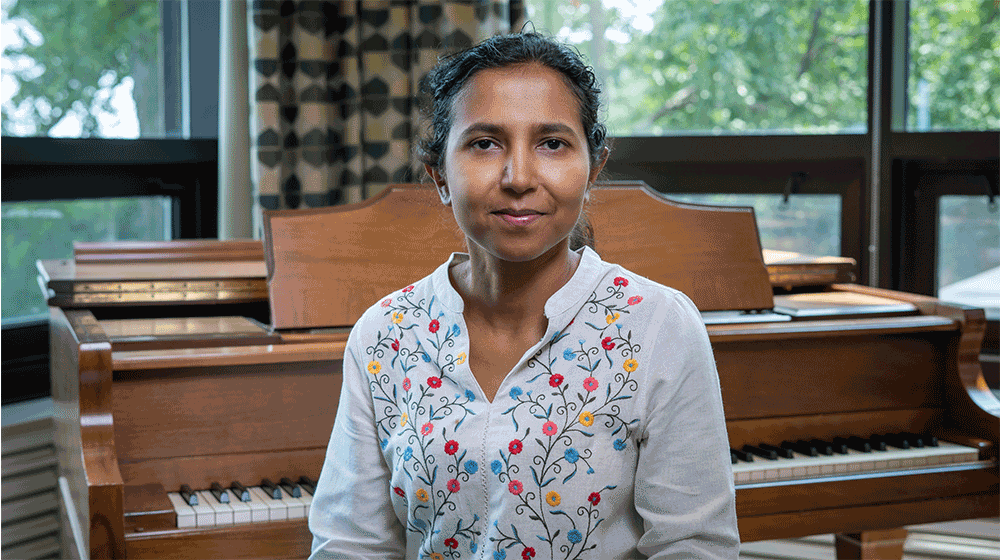Professor Chakraborti joins Economics Department

As a child in India, Assistant Professor Lopa Chakraborti saw all around her the impact of scarce resources and soon began wondering why.
Below, she shares her journey from a small town in North Bengal, India, to her current work helping Loyola students unpack the intersection of economics, environment, and social justice. She has a joint appointment to the faculty of the Quinlan School of Business and the School of Environmental Sustainability.
Why economics?
Growing up in a densely populated developing country made me aware of the significance of economics. Not only as a discipline, but also how much economics can contribute towards addressing prosperity of a massively inequitable country with the majority of the population living in poverty.
Economics is defined as allocation of scarce resources for production and consumption of goods and services. In a large developing economy, these challenges are facing every individual from the illiterate trash collector to the curious mind who is about to decide whether to stay with family tradition of medical training or learn how economic policies can address sustainable development.
Why connect economics and sustainability?
It is impossible to be negligent about climate change and environmental sustainability as we are currently facing a pandemic that debilitated the global economy and natural disasters at a scale that is consistently increasing in intensity. Not to mention, fossil fuels and other natural resources such as forests, water, and land are already exhausted or over-exploited by man’s consumption and production interventions. Food scarcity due to climate change impacts on agriculture is looming large on the horizon.
I was exposed to excessive amounts of air pollution, sewage, and garbage in India. It was in plain sight for whoever lives or visits the country. Environmental pollution affects individuals’ health through their infancy to old age. These are acute as well as long-term affecting exposed persons later in their life in terms of life expectancy and work productivity.
After my bachelor's from Presidency College, Kolkata and masters from Indian Statistical Institute, New Delhi, I had personally experienced the dire urban quality of life. I was determined to pursue environmental and natural resource economics as I applied for my PhD program at Maryland.
What will students learn from you?
I am enthusiastic about teaching economics to students. I focus on communicating the logic or intuition behind various economic principles and models. I find it interesting how teaching a diverse group of economics majors and non-economics majors involves teaching the principles from a versatile perspective. I also focus on empirical evidence and policy implications as theory is not very appealing if it cannot be applied to the real world.
What is your research area?
My research is on environmental justice, regulation, valuation, and clean energy. Studying the behavior of polluters, i.e., incentives for pollution reductions, and distributional burden on different segments of the population (poor versus rich, white versus Black and minorities) are intriguing to me as research questions due to their policy implications.
Finding quantifiable value from our environment and using that as a tool to see the benefits of the environment and ecosystem services are interesting areas. Energy is new to my portfolio given the significance of renewable energy to meet climate goals.
What drew you to Loyola?
Quinlan’s reputation reaches far and wide, and teaching at Tulane University in New Orleans, next door to Loyola University New Orleans, made me keen on taking up the job at Loyola University Chicago. The School of Environmental Sustainability is an ideal fit for me with my background in environmental economics and the opportunities to work with colleagues from diverse disciplines.